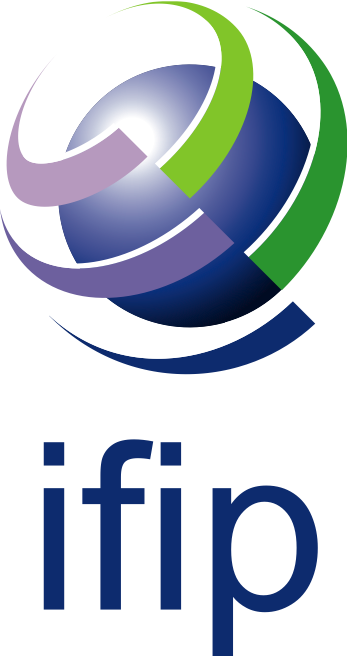About IFIP
IFIP:
- is the leading multinational, apolitical organization in Information & Communications Technologies and Sciences
- is recognized by United Nations and other world bodies
- has a formal consultative partnership relation with UNESCO
- represents IT Societies from 56 countries or regions, covering all 5 continents with a total membership of over half a million
- links more than 3500 scientists from Academia and Industry, organized in more than 101 Working Groups reporting to 13 Technical Committees
- sponsors 100 conferences yearly providing unparalleled coverage from theoretical informatics to the relationship between informatics and society including hardware and software technologies, and networked information systems
Within IFIP:
- IT societies’ members find a meeting place for sharing experience, and discussing challenges and opportunities
- TCs and WGs contribute to, and often lead, progress in the state-of-the art knowledge and practice
IFIP scientific and technological leadership:
- is warranted by WG membership, based solely on individual excellence
- is asserted by the organization of some 100 highest quality international events, and the publication of some 30 new books annually that are distributed worldwide
Formally IFIP is a non-governmental, non-profit umbrella organization for national societies working in the field of information processing. It was established in 1960 under the auspices of UNESCO as a result of the first World Computer Congress held in Paris in 1959.
IFIP is incorporated in Austria by decree of the Austrian Foreign Ministry (20th September 1996, GZ 1055.170/120-I.2/96) granting IFIP the legal status of a non-governmental international organisation under the Austrian Law on the Granting of Privileges to Non-Governmental International Organisations (Federal Law Gazette 1992/174).


